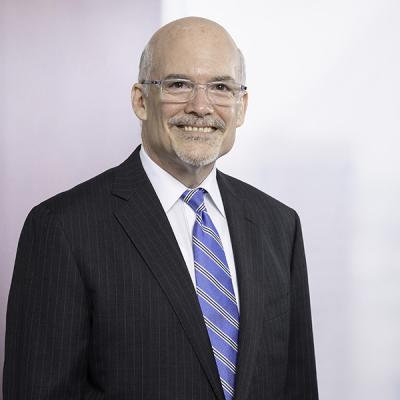Eighth Circuit Adopts Stricter But-For Causation Standard for False Claims Act Claims based on Anti-Kickback Violations
In a significant win for False Claims Act (FCA) defendants, the Eighth Circuit recently reversed a district court decision that defendants violated the FCA premised on violations of the Anti-Kickback Statute (AKS). The Eighth Circuit adopted a stricter but-for causation standard for FCA claims based on AKS violations, holding that, in order to prevail on these claims, the government must prove that FCA defendants would not have submitted claims for particular items or services to Medicare or Medicaid absent the illegal kickbacks.
Factual Background
In United States ex rel. Cairns v. D.S. Medical LLC, No. 20-2445 (8th Cir. July 26, 2022), a neurosurgeon ordered a high volume of spinal implants from an implant distribution company wholly owned by his fiancée. The arrangement was lucrative for the couple; the fiancée earned $1.3 million in commissions from one manufacturer alone, even though the neurosurgeon was her only large customer. Further, the neurosurgeon received an offer to purchase stock from that same manufacturer, and, in turn, he ordered more implants from the manufacturer. Physicians in other practices grew suspicious and filed complaints against the neurosurgeon and his fiancée’s implant distribution company. The government intervened and filed its own complaint, alleging that the couple violated the AKS and the FCA on the premise that the couple received kickbacks that “tainted” claims submitted to Medicare and Medicaid.
FCA Violations Premised on AKS Violations
In 2010, the Affordable Care Act amended the AKS to state that “a claim that includes items or services resulting from a violation of this section constitutes a false or fraudulent claim” constitutes a violation of the FCA. At trial in Cairns, the government relied on this language to bootstrap the FCA to its AKS allegations, arguing that kickbacks “tainted” the neurosurgeon’s choice of implants and so his claims submitted to Medicare and Medicaid were false claims. Rejecting defendants’ argument that the government has the burden to prove that the implants would not have been used but for the alleged kickbacks, the trial court adopted the government’s theory in its instructions to the jury. So instructed, the jury entered a verdict against defendants on the government’s AKS-based FCA claims.
On appeal, the Eighth Circuit reversed, concluding that the plain meaning of the term “resulting from” requires that a plaintiff asserting an FCA claim based on purported AKS violations establish that the alleged false claim would not have occurred but for the illegal kickback. In so ruling, the court relied on the Supreme Court’s construction of identical language in the Controlled Substance Act in Burrage v. United States, 571 U.S. 204, 210–11 (2014). In Burrage, the Supreme Court held that a statute specifying an enhanced sentence whenever “death or serious bodily injury results from the use of [a distributed controlled] substance” imposes a requirement of actual causality, meaning that the use of drug must have been a “but-for cause of the death.” Although the context is different, the Eighth Circuit held that the meaning of “resulting from” under the AKS is the same construction and tracks the “textbook definition.” Thus, the Eighth Circuit imposes a burden to prove but-for causation where an FCA claim is premised on an AKS violation.
Circuit Split on the Causation Standard
As Cairns acknowledges, its ruling conflicts with the Third Circuit’s decision in United States ex rel. Greenfield v. Medco Health Sols. Inc., 880 F. 3d 89 (3d Cir. 2018). In Greenfield, the Third Circuit considered and rejected the argument that Burrage’s construction of the term “results from,” as used in the Controlled Substance Act, should also be applied to the “resulting from” language of the AKS. Instead, Greenfield concludes that, though the AKS’s “resulting from” language requires some “link” between the claims submitted for reimbursement and the kickback scheme, it does not require the plaintiff show but-for causation. In reaching this conclusion, the Third Circuit relied on legislative history and the intent of the drafters. But, in Cairns, the Eighth Circuit explained that it would not adopt that approach at the expense of the plain meaning of the statutory text.
Cairns is obviously a hugely important precedent for defendants, and provides a basis in non-Third Circuit courts to argue that but-for causation is a required element of an FCA claim premised on alleged AKS violations. It will be interesting to see how other circuits address this issue. The already-existing circuit split creates a reasonable likelihood that this issue could eventually find its way to the Supreme Court.




